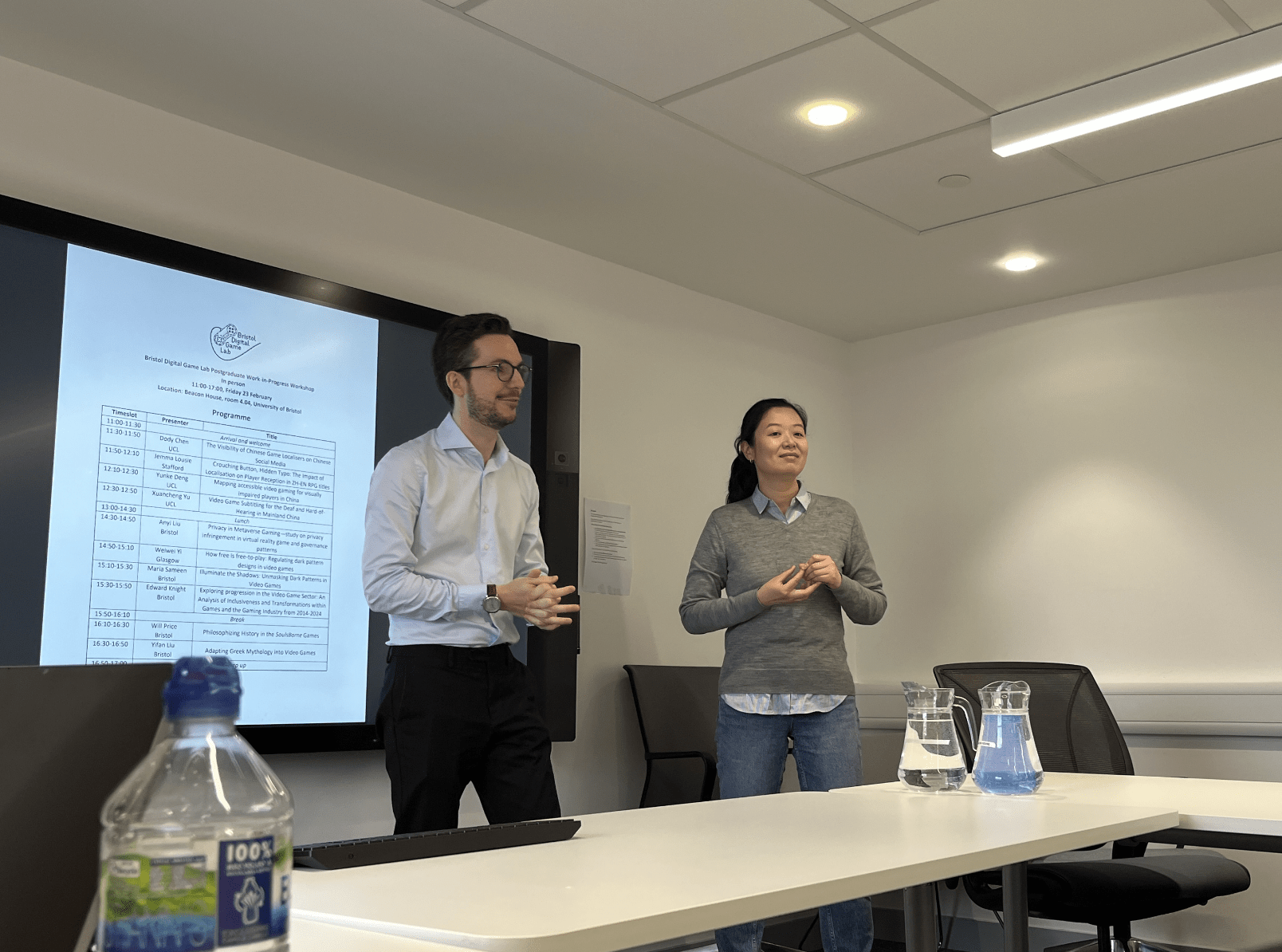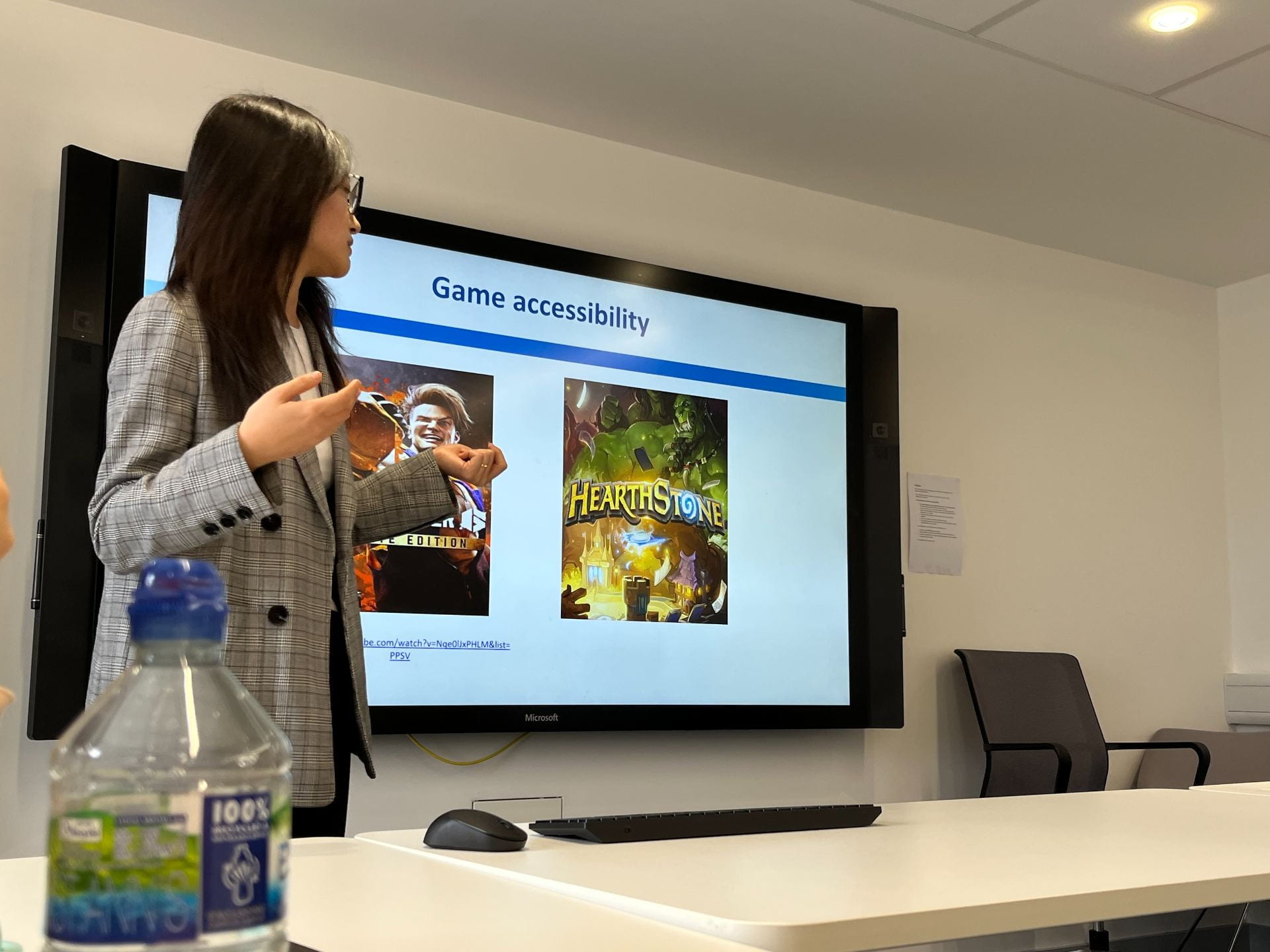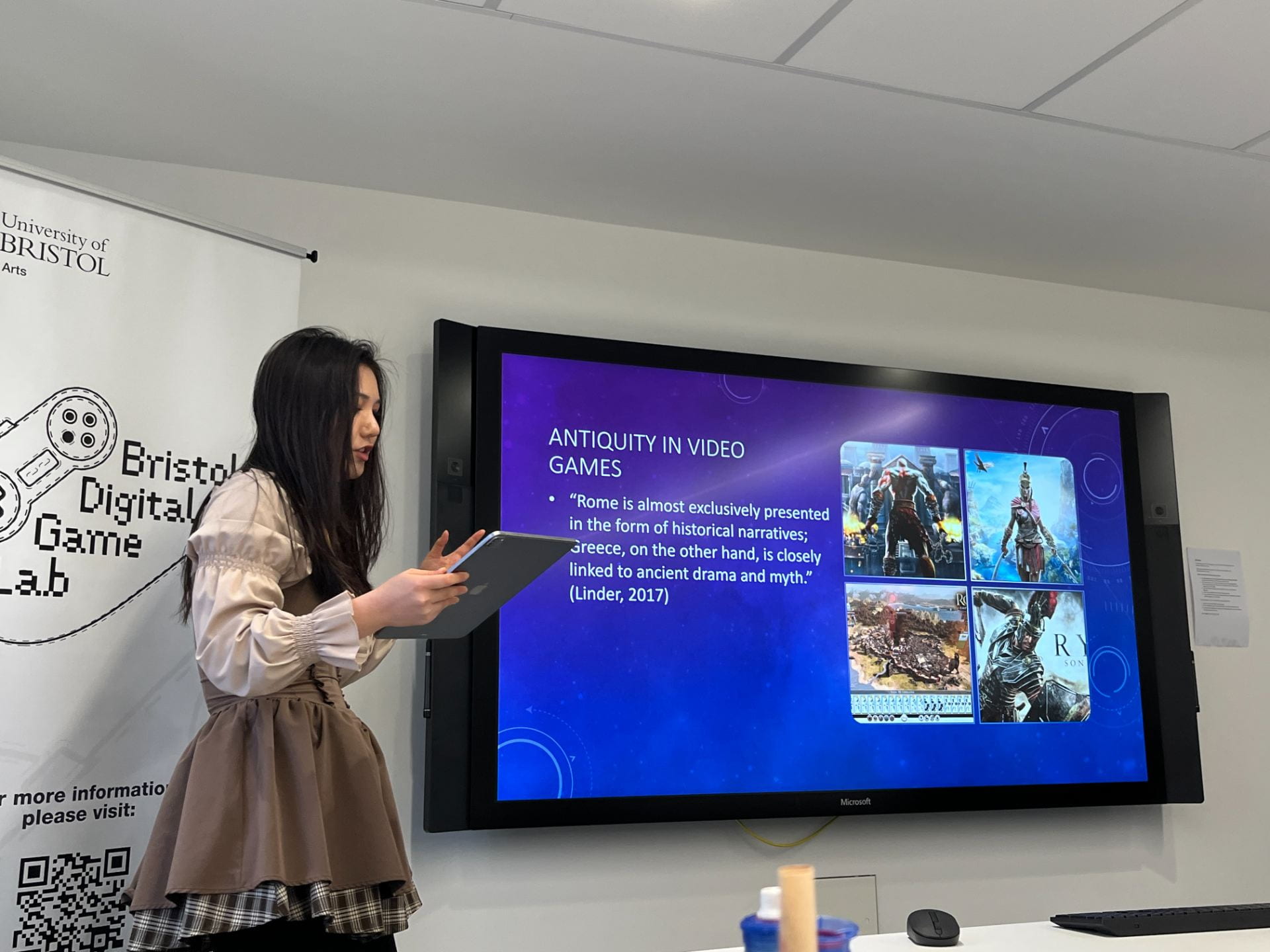
The postgraduate work-in-progress workshop convened by the Lab on Friday 23 February was a successful enterprise, hosting talks on a range of topics. From law and localisation to accessibility and inclusion, philosophy and myth, an encouraging platform allowed postgraduates to discuss their work.
We first heard from Dody Chen who illustrated the ambiguous and evolving relationship between fan-contributors and localisers in Chinese video games. Chen delved into her investigations of social and streaming platforms and exemplified a practice-led methodology based in netnography and content analysis, drawing on her own roles as both streamer and academic. Jemma Lousie Stafford followed, presenting on her work researching the impact of localization on audience-perception of Chinese games. Lousie enquires of how localization influences in-game elements such as menus and character design, deploying methodologies ranging from scouring Steam reviews to interviewing players after their experience of playing her case-studies. Jemma took us through the challenges of differing localization approaches, self-censorship and genre expectations, encompassing a research area that will no doubt prove fertile and exciting.
Closing our morning session were a pair of talks on accessibility in Chinese videogames. Yunke Deng spoke on accessibility for visually impaired players. Deng’s work maps existing accessibility options for visually impaired players, surveying the needs of such players before aspiring to interview developers around the practicalities and possibilities for incorporating accessibility features. Xuancheng Yu then presented on game accessibility for the hard of hearing. Yu traced the history of sound development across gaming from accessibility to inaccessibility to renewed exploration and improvement. Yu delineated a series of useful means to increase accessibility such as closed captions, accessible game design and the essentiality of visual and tactile feedback for auditory prompts. Yu engaged with the application of subtitles in game environments with a focus on the Chinese market, and evinced a methodology via which her important work will proceed.

Beginning the afternoon’s programme was Anyi Liu with a talk on privacy infringement in virtual reality games. Focusing on communities such as VR Chat and Horizon Worlds, Liu navigated a number of areas in her presentation, delving into the contrasts between informational and spatial privacy, illuminating the already relatively mature bonds being formed via VR communities and the overlap and collision attendant on interactions between game rules and coded law, and how such mechanical barriers can affect both play and privacy. Our next two presentations each dove into dark patterns in games. Weiwei Yi spoke on the difficulties of regulating the aforesaid patterns, the challenges even of locating them and then defining their appearance. Her work examines how major game companies may comply or coerce via algorithms. Maria Sameen then demonstrated her analyses of dark patterns in mobile games and explored the establishment of a taxonomy of the dark pattern, a lexical field via which we can begin to understand the characteristics, principles and architecture underlying dark patterns, plus ways by which to detect them.
Edward Knight spoke engagingly on the trajectory of inclusivity in the games industry between 2014-24, attempting to delineate afroprogression via criticism of afropessimism that is rooted in observation of the incremental yet improved black representation and visibility in the industry. Knight framed this as a rigorous drive toward afrooptimism facilitated via analysis of content production and dialogue with a wide range of industry members.

Our final two talks returned us to intersections of ludology and history. Will Price gave a paper on the act of playing Bloodborne’s Old Yharnam as resistant history – offering up concepts such as dark proceduralism and cyborg historicism in delineating his theorization of history as a playful act veering between psychopathy, necrophilia and the rabitic.
Closing the day was Yifan Liu discussing her work on reception of Greek mythology in Hades. Liu presented on potential coalescences between game-mechanics and reinterpretations of both classical myth and readings of myth (such as in her illumination of how Hades is reading Sisyphus plus Camus’ Sisyphus). Liu elucidated how the mechanics of a genre such as the roguelike could harmonize with an authorial attempt to commentate myth.
All in all, the workshop was a multidisciplinary showcase of current gaming research. It created a collaborative environment that the Lab hopes will prove productive for all the researchers as they continue their exciting work.
A particular thanks to Will Price for this thoughtful write up of the event.

